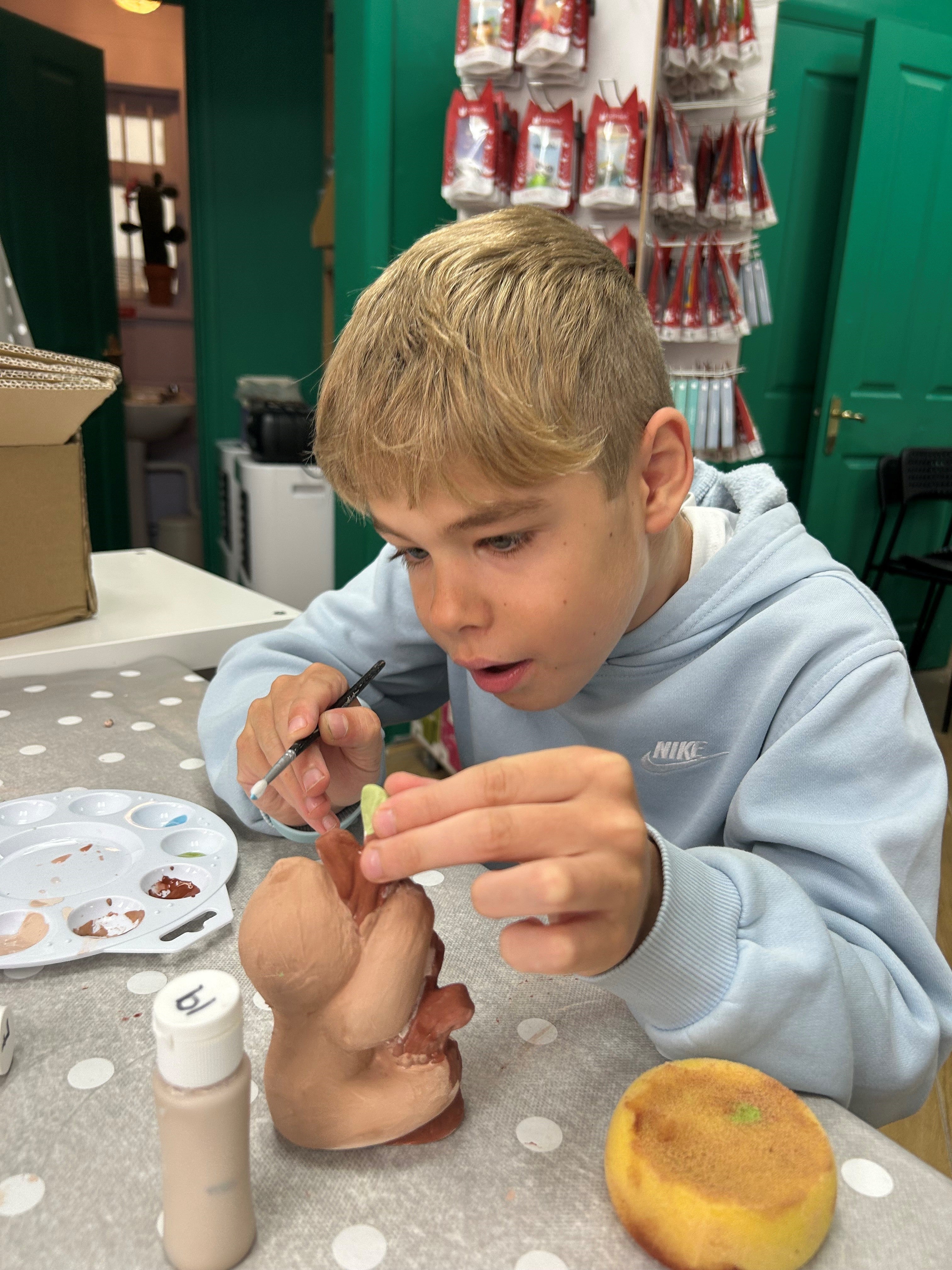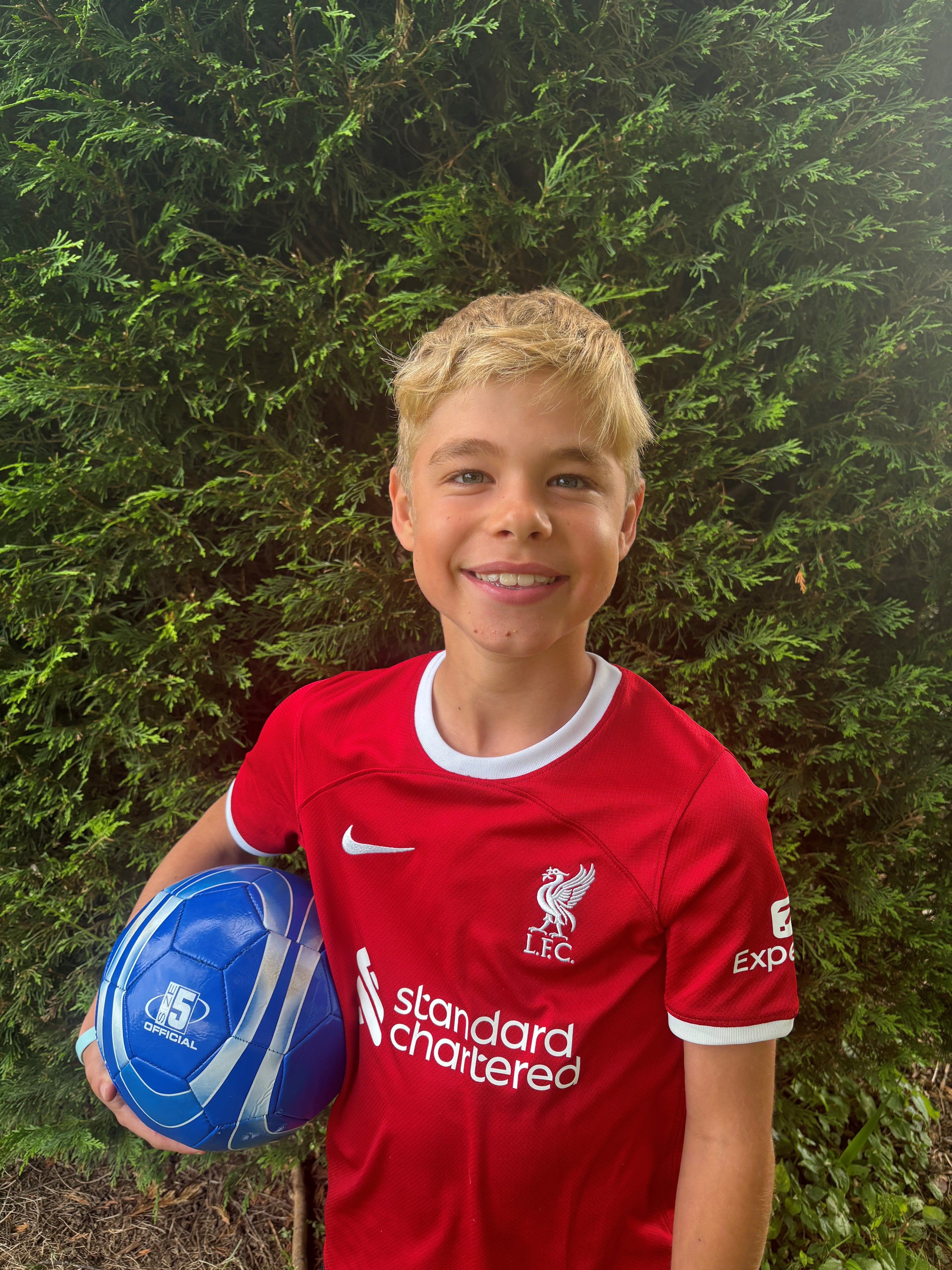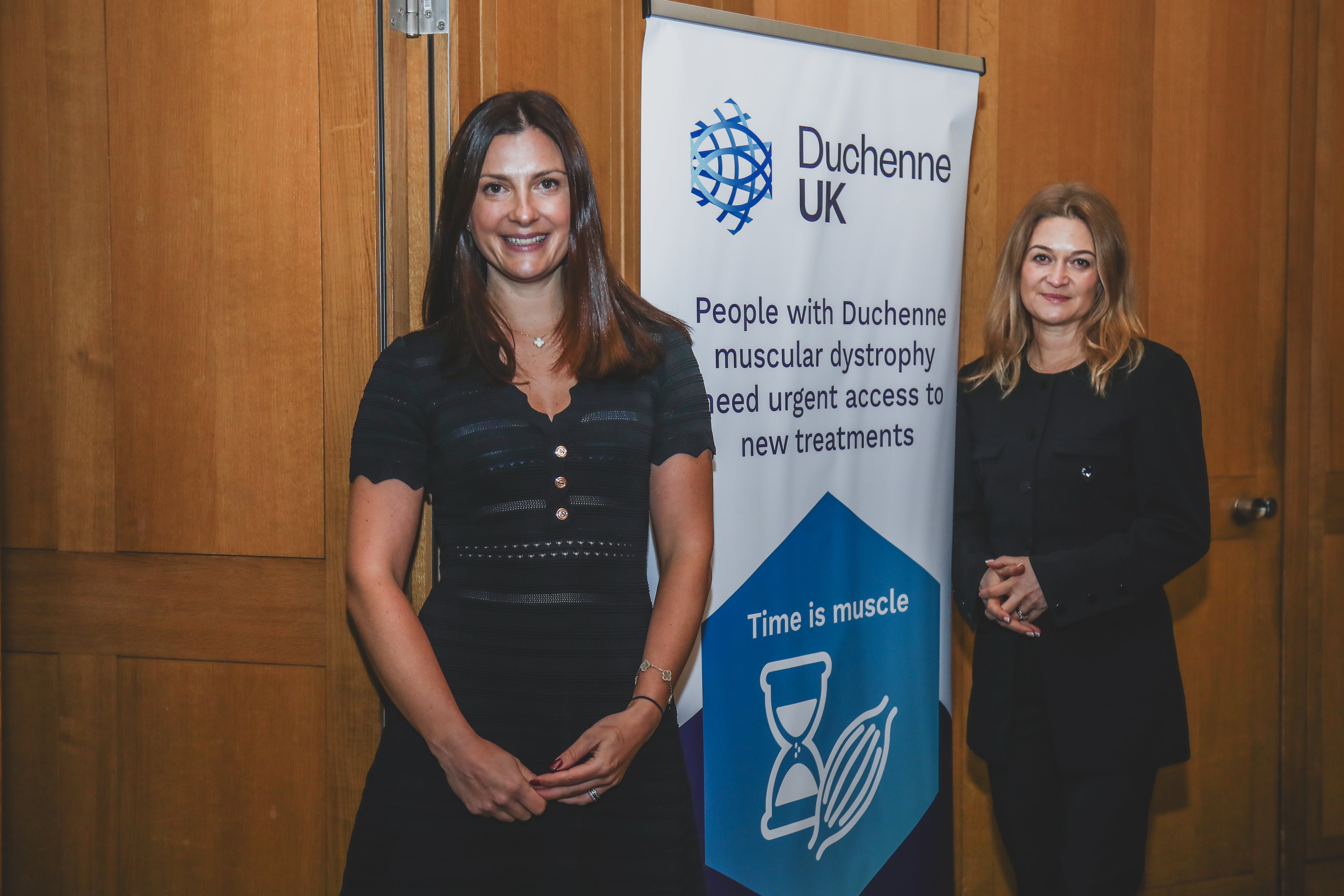This website uses cookies so that we can provide you with the best user experience possible. Cookie information is stored in your browser and performs functions such as recognising you when you return to our website and helping our team to understand which sections of the website you find most interesting and useful.
Parents of twins who share a rare illness that could affect the ability to walk have described the “nightmare” battle they face with the NHS to access a free drug.
Givinostat, a medicine that can slow the progression of Duchenne muscular dystrophy, is being offered at no cost by a drug firm while it awaits NHS approval. The drug can prolong the time children with the condition can walk.
However, despite being part of an early access programme since November, only a limited number of NHS trusts across the UK, particularly in England, are providing the medication.
Duchenne UK, a charity supporting those affected by the condition, has described the situation as a "cruel" postcode lottery, with families in a race against time to secure access to the drug.
The charity is helping families in their fight for givinostat, including Rosie and Pete Day, and their 10-year-old son Jasper, from Horsham, West Sussex.
The Day family have twins Jasper and Arabella, aged 10, and two older daughters. While both Jasper and Arabella have Duchenne, with Arabella a carrier of the genetic disorder and Jasper the most affected, the condition mostly affects boys.

The drug, developed by ITF Pharma UK, is only being given under the early access programme to children who are still able to walk.
Some NHS trusts are reportedly refusing to supply the drug, while others are delaying its provision by creating prioritisation lists.
The trusts cite the cost of monitoring the drug, approximately £1,900 per patient per year, as a barrier, stating that these expenses must be covered from their existing budgets.
In a desperate attempt to expedite access, parents have met with Health Secretary Wes Streeting. However, the government maintains that the decision to provide the drug rests with individual NHS trusts.
Mrs Day said: “We try and live in the moment and, in this moment, there’s an opportunity to make a massive change to Jasper.
“We’re not going to cure it, but this drug gives him the best chance of having the early life that he wants to have and what every parent wants to give their child.
“It’s so close – and yet we’re stuck.
“We’re stuck in this process where there’s something in reaching distance that could make a huge difference to keep him walking, keep him active, keep him with his siblings in the garden, keep him walking up the stairs, all of those things, and it just feels that we can’t quite get there.
“We’re on the finishing line to get something that will make a difference and we can’t quite get there because of the system we’re in.
“The drug is not going to cure it, but it will give him the childhood you would wish to give your child – to keep them playing football, coming on dog walks, being able to walk up the stairs, playing the French horn, all of those things that you dream your child is going to get to do.

“We can’t give it because it we’re stuck, even though it’s free and it’s there – we can’t give it.
“It feels like a nightmare, because you know that the doctors want to give it, but when it comes to getting the drug in his mouth and seeing what it would do, we’re stuck.
“It’s a lottery, basically, depending on where you are in the country … and within NHS trusts themselves.”
Jasper is under the care of the Evelina London Children’s Hospital, which is only now starting to contact patients and is drawing up a priority list for who gets the drug first.
According to Duchene UK, boys whose condition is getting worse risk falling off the list entirely while waiting for the drug.
Around 500 boys in the UK are eligible for givinostat, which can be taken at home like Calpol, with hospitals then doing follow-up blood tests of around eight in the first year, followed by twice a year thereafter.
Children may also need an ECG, though these are already part of routine Duchenne monitoring.
Emily Reuben and Alex Johnson, founders of Duchenne UK, said: “As time ticks by, more boys are losing out on their chance to access givinostat.
“This is a simple treatment, which can be easily managed at home, and requires uncomplicated blood tests to monitor. It’s free to the NHS and could offer real hope for patients and their families.

“The delays are cruel and the postcode lottery is unjustifiable. We are calling on the NHS to urgently make this available to both ambulant (walking) and non-ambulant boys.”
To date, all health boards in Scotland are rolling out the drug, alongside those in Swansea and Cardiff.
Leicester Royal Infirmary was the first trust in England to give the drug, but the Evelina has not yet, and neither have trusts in Manchester, Liverpool and Newcastle.
Great Ormond Street Hospital is working to supply the drug.
A spokesman for the Evelina said: “We have begun contacting families of all existing Evelina London patients who may be eligible for givinostat and are working to set up appointments in the next few months.
“Our clinical team are working through our patient lists and are currently prioritising children who need the treatment most urgently, or are at a higher risk of losing movement (ambulation) soon.”
An NHS spokesman said: “The first National Institute for Health and Care Excellence (Nice) committee meeting to consider this treatment is scheduled to be held in July 2025, and if manufacturer ITF Pharma can offer a cost-effective price to enable Nice to recommend its use, the NHS will be ready to work with the company to explore fast-tracking access for patients.
“NHS England has published guidance on manufacturer-led early access schemes, which require trusts to cover substantial costs and find additional clinical resources to administer new treatments, and we understand a number of trusts across the country are preparing to offer givinostat via such a scheme.”



 Africana55 Radio
Africana55 Radio 
